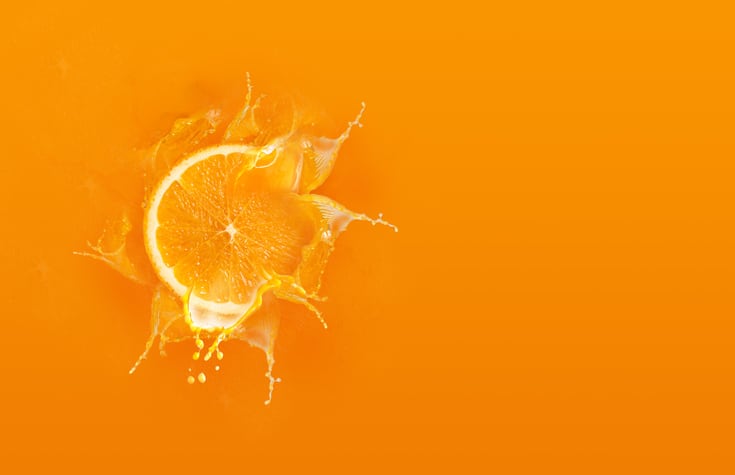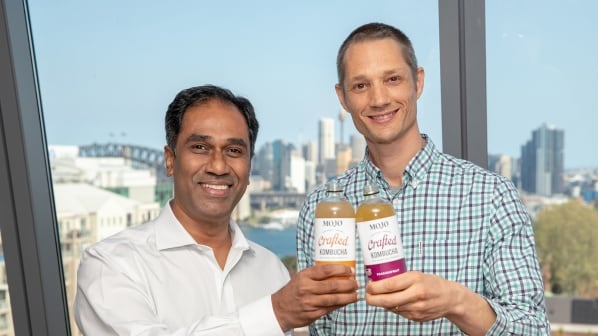Coca-Cola CEO James Quincey says the company’s high rate of acquisitions over the latest quarter has been an exception rather than the norm – but the question remains how these new brands are to be successfully incorporated into its portfolio and how the company intends to embrace the potential of its newest brands.
Coca-Cola has created a new division, Global Ventures, to focus on scaling acquisitions and brands, as well as identify and nurture the next series of fast-growing opportunities.
M&A
James Quincey says recent acquisitions and investments have been in line with its strategy to drive disciplined growth in the business. Some innovations start at home: others come through acquisitions.
“We've been leveraging innovations, like Coke with coffee, to grow our portfolio by addressing key consumption occasions, and also how we're lifting, shifting and scaling successful brands, like Fuze Tea, across multiple markets,” said Quincey. “However, there are times when we need or want to look externally and leverage M&A to drive our total beverage portfolio.
“Over the last few months, we've announced quite a few acquisitions and investments. Each one is part of our larger strategy to broaden our consumer-centric portfolio, but don't read too much into the number of transactions in a single quarter and extrapolate that as the pace of activity going forward.
“We, of course, use M&A for many purposes: to fill gaps in our portfolio, yes; enter emerging categories or even obtain capabilities or platforms that complement our existing strengths. And we look for opportunities to create value by scaling brands to be bigger and better than they already are.”
Developing brands: Global Ventures
Quincey says that the key to speed is knowledge sharing between different markets and brands. The Global Ventures unit will focus on globally scaling acquisitions and brands, as well as identifying and nurturing the upcoming opportunities.
“We've had acquisitions in parts of the world. We've had venturing emerging brands units in different parts of the world. What we've not been so successful at is tying that together across regions, across the groups, if you like, and I think that's what this represents in terms of the Global Ventures.
“So rather than letting something be successful in one group and it taking forever to get to another group, this unit here will be there to help push and drive the agenda for greater speed going forward.
“At the end of the day, how do we get faster? We get faster not just because of all those things, but because there are exciting, interesting, financially-attractive opportunities that the system can capture. The relative economics and the capital needed differ by category. They differ depending on the starting point of the different systems in the different part of the world, what's already been built. And, of course, what we've learned over the years with our partners is how to move quickly to a place where it's attractive for everyone.”
Recent acquisitions
Coca-Cola has made a number of investments recently, selecting brands that Quincey says “have strong edge will eventually allow us to gain quality leadership in the respective categories.”
In North America, Coca-Cola has taken a minority ownership stake in Bodyarmor, a premium sports performance and hydration brand and one of the fastest-growing beverage trademarks in the US.
In September, Coca-Cola bought Australia’s Organic & Raw Trading Company, which gives Coca-Cola its first company-owned kombucha brand, Mojo. In Australia, it has also acquired a 45% minority interest in Made Group, which is known for its cold-pressed juices and high-protein smoothies.
Coca-Cola has also purchased Tropico in France, giving the company a ‘strong foothold’ in the still fruit-flavored beverages.
Costa coffee
And its biggest announcement has been its pending $5.1bn acquisition of UK headquartered coffee shop chain Costa, which is expected to close in the first half of 2019.
“What we get with Costa is more than just a brand,” said Quincey. “It's a platform that will give us the ability to scale within the $500bn global hot beverage category.
“Despite the size of Costa, our approach will be similar to the other deals, like innocent and Honest. We'll aim to reserve Costa's unique capabilities, while adding the strength of the Coca-Cola system. As with all our M&A, completing the acquisition is only the first step. What is critical is accelerating our results and executing with precision.
“I think there's a number of exciting things that can be done as Costa becomes part of our global coffee platform and our ability to grow in coffee. Obviously, ready-to-drink is an opportunity that makes a lot of sense for us to focus on.
“I think the other pieces where we can for sure grow our coffee business is in being a better beverage partner to the many customers out there in the many different channels, whether that be through the use of a bean to machines relationship within their facilities, or the use of the Costa vending machines, which is a bit like our Freestyle machines on the Coke side.
“There are a lot of ways to work with immediate consumption customers to bring a coffee offering from The Coca-Cola Company, whether in the brand, and the drink and the machinery. And, of course, then there's the at-home market, whether that be pods, capsules, loose beans, there is a substantive opportunity to grow that space as well.”




